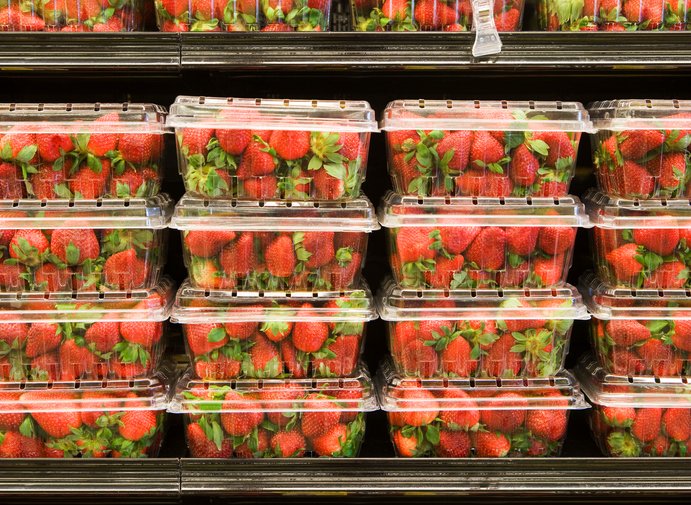Retail giants across Europe are guilty of promoting false solutions to the plastic pollution crisis and perpetuating double standards, according to a new report.
The first-ever analysis of the role European supermarkets play in addressing plastic pollution, ‘Under wraps? What Europe’s supermarkets aren’t telling us about plastic’, is a result of collaboration of over 20 NGOs, members of Break Free from Plastic movement, from across Europe.
Lack of ambition
The specially designed ranking developed by The Changing Markets Foundation revealed a near-complete lack of ambition across three categories of questions on the topics of: Transparency and performance, Commitments and Support for government policy.
The overall average score achieved by retailers was only 13.1 out of 100.
Of 130 retailers contacted, only 39 retailers (30%) provided a written response to the coalition’s questionnaire, but many of these responses did not provide meaningful replies to the questions.
Further analysis of 74 retailers across 13 countries revealed a concerning lack of actions to tackle the plastic crisis.
UK supermarkets’ double standards
Overall, retailers from the UK and France scored 39.6% and 23.3% respectively. No other country achieved a total average of more than 20%. The average score achieved by retailers in Spain, the Czech Republic and Estonia was below 10%.
Even within supermarkets performing well in the UK, the report uncovered double standards for brands with international operations extending across Europe.
For example, Lidl, a brand from the biggest European retail group Schwarz with 125.3 billion EUR turnover in 2020, achieved 44.7% in the UK whilst only achieving between 13% and 23.7% in other countries such as Germany and the Czech Republic.
Similarly, ALDI Süd was the top performer in the UK and Ireland, with 65.3% and 61% respectively, but it only achieved 11% in Austria, where it operates under the name Hofer, and 25.7% in Germany. Aldi is the second-biggest retailer in Europe with 106.3 billion EUR turnover.
‘Our report shows that even the best performers, such as ALDI and LIDL have double standards, when it comes to addressing the plastic crisis. They performed well in the UK and Ireland, but show abysmal results in Spain, Germany and other countries where they operate.
‘Such differences cannot be explained through different national legislation and show that not a single retailer is responding to the plastic crisis with the urgency this situation demands. Instead of investing in systemic solutions, such as plastic reduction and reuse systems, retailers were found to be greenwashing and delaying legislation.’
NUSA URBANCIC
Campaigns director at the Changing Markets Foundation
 Play Video about This Rock Might Just Save The World
Play Video about This Rock Might Just Save The World Play Video about Play 2 hours of rock
Play Video about Play 2 hours of rock Play Video about Play 2 hours of brook
Play Video about Play 2 hours of brook Play Video about Play 2 hours of sheep
Play Video about Play 2 hours of sheep











































